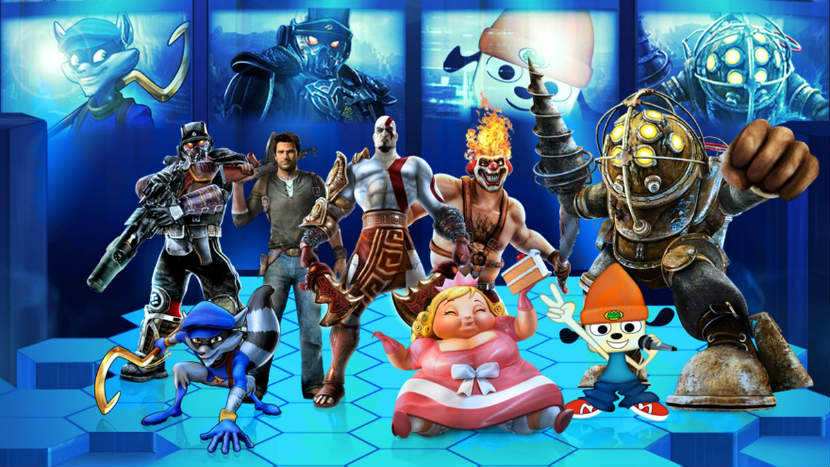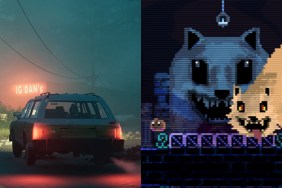Yeah, I know what you’re thinking, dear reader. What is this guy smoking? Wasn’t that game awful? Didn’t Sony drop the brand like a sack of dead Toros? Well, you may be right on that last account. Poor Toro. Look, I acknowledge the issues PlayStation All-Stars Battle Royale had. There were plenty of them, most of which ultimately sank the game outright. But there was also a lot of cool stuff happening in Sony’s would-be Super Smash Bros. competitor. I really latched onto All-Stars despite its issues, and today it’s one of the few platinum trophies I have. So that’s why I think I’m qualified to talk about a sequel. Let’s get our hands dirty. My hands, I guess.
The Elephant in the Room
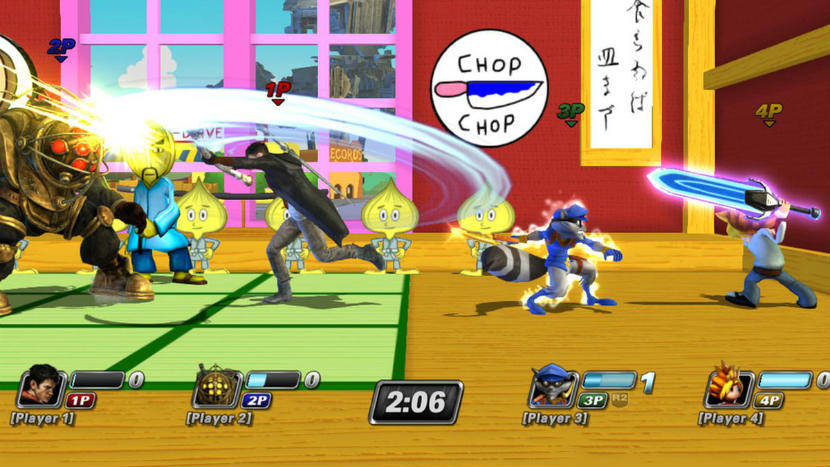
Naturally, the most obvious talking point comes first. The point system in PlayStation All-Stars was a big problem. In Super Smash Bros., the default point system is based on dealing cumulative damage, and knocking opponents off the stage. In All-Stars, you spend the fight building meter, then popping off a special move with insta-kill properties. This ruined the game for two reasons. One, it made the moment to moment gameplay feel like it didn’t matter. If you’re landing hits and all you’re doing is building a meter, there’s no drama. You’re just killing time.
The second issue, is that sort of mechanic is a balancing minefield. When a character gets a full meter, they get to use one special move, then the chamber is empty again. There are multiple tiers of said moves, and the higher you go, generally the more destructive it gets. But generally speaking, all you need to do is catch someone in an animation and they’re done. This presents a challenge, in the context of a fighting game. You need to make each character feel distinct, with animations and flourishes that match their character, game they’re from, so on and so forth. But a mechanic as universal as instant kills makes variety a problem. In PlayStation All-Stars’ case, that resulted in a lot of efficiency problems. Certain characters were way better at maximizing points during specials, sometimes even the lowest tier ones. On the other end, characters like Sir Daniel had to work exponentially harder to get points.
I understand that the developers wanted to separate their game from Smash, and this system was the result they came up with. And I’m not proposing going back to the Smash thing, especially since there are now other games doing exactly that. The PlayStation All-Stars sequel I’m seeing my head takes a page from Power Stone’s book, blending the party-friendly style with a traditional health meter. That seems like an easy answer, but it’s the best way to make the moment to moment scrapping matter. That’s especially important due to what really made All-Stars fun to play.
Make it the Hardcore Smash
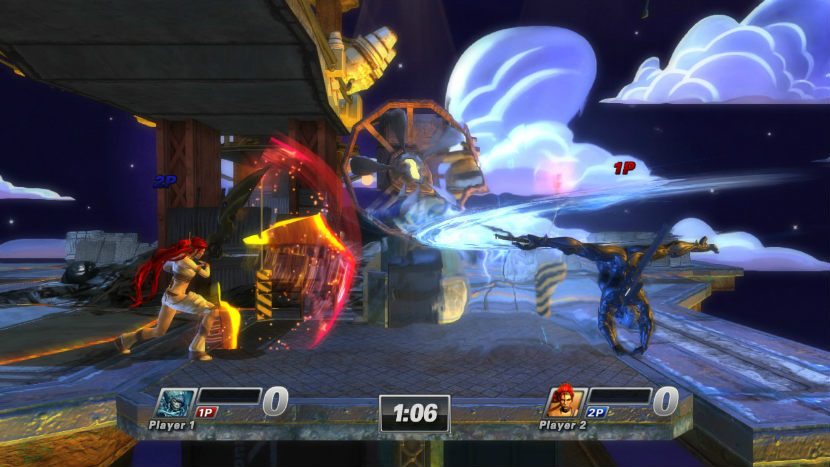
Ultimately part of All-Stars’ downfall was how the developers tried to do Smash and speak the FGC language at the same time. You had Seth Killian, the face of Street Fighter IV in the west, fresh out of Capcom and fronting like All-Stars was a competition-level fighter. But it wasn’t, because of the massive block of text above this one. However, one of the best parts about the game was the built-in combo potential. You had characters like Heihachi, Dante (Donte), and Raiden (read my piece on Raiden, it’s really good, thanks) able to naturally create strings of offense that almost played out like their home games, and it felt great. Other characters were also able to create opportunities for combo damage in a way that Smash Bros. really isn’t built. It was inconsistent due to some characters having wildly different playstyles, but generally speaking, there was a lot of effort put into depth within each character’s moveset.
A sequel should double down on that aspect, in tandem with more traditional-looking health mechanics, and make All-Stars 2 a fun game to play with friends who don’t know what they’re doing, but also leave the door wide open for the hardcore hopefuls. While Smash was arguably forced into hardcore, professional play, All-Stars 2 has the foundation to have its cake and eat it too in this respect.
The PS4 Era Makes for a Better Roster
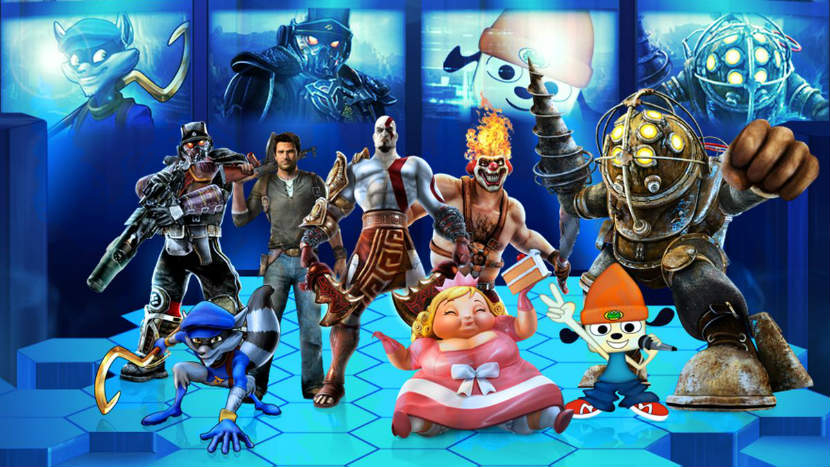
There’s no denying how disappointing PlayStation All-Stars’ roster ultimately was. The PlayStation brand just didn’t have that many capital-C Characters at the time, and we saw the ugly results of that. Characters the PlayStation brand was really known for were not actually PlayStation or Sony-exclusive IP, such as Final Fantasy or Crash Bandicoot. Sure there were plenty of names like Sly Cooper or Infamous in the roster, but many characters were from much older or neglected IP like Twisted Metal or Ape Escape, or properties with very little actual PlayStation connection like BioShock or Devil May Cry.
But now, the PlayStation brand has spent the years since developing huge, single player experiences with a huge focus on character and narrative. There are household names now associated with the PlayStation brand, that can really give a sequel a boost in relevance. Horizon and The Last of Us are prime examples, along with Bloodborne, and even stuff like Knack and Astro Bot. Hell, Sony could probably get Spider-Man in there too.
Presentation Matters Too
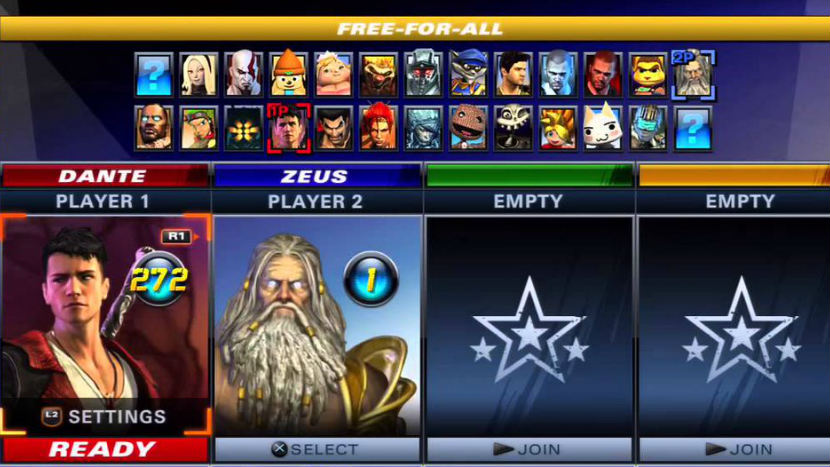
Another big problem with PlayStation All-Stars was a real lack of presence. The menus felt rote, with plain-looking UI design and generic-sounding techno music powering most of the experience. Smash Bros. partially earned the renown it did based on the reverence it treats the Nintendo canon with. Lavish music arrangements from classic games, loud, high quality buttons and UI loaded with personality, and plenty of pizzazz in things like cutscenes, results screens, and more. All-Stars felt like a budget title in a lot of ways, and that’s not how you do a masturbatory mascot fighter. You have to go all out and make the experience feel like an event. Crossovers are inherently a big deal, but there’s also legwork that has to be done to reinforce that natural appeal.
At the end of the day, I think there is still a demand for a PlayStation All-Stars 2. Or something new to take its place, if that particular branding is a bit poisonous. We live in a time in which crossovers are at a fever pitch in popularity, thanks to things like the Marvel Cinematic Universe. Fighting games are also experiencing a bit of a renewed boom, despite a few bumps in the road along the way. And the PlayStation community is also at an all-time high in terms of fan engagement and business. All of these factors should, in theory, support a new crossover fighter. But before that can happen, there are lessons that need to be learned from the first go. With a renewed focus on competition, a more robust and PlayStation-focused roster, and actual resources spent on presentation, a PlayStation All-Stars sequel could be a big hit.
